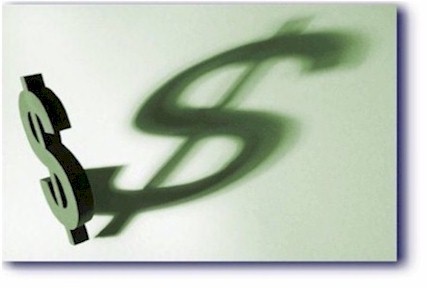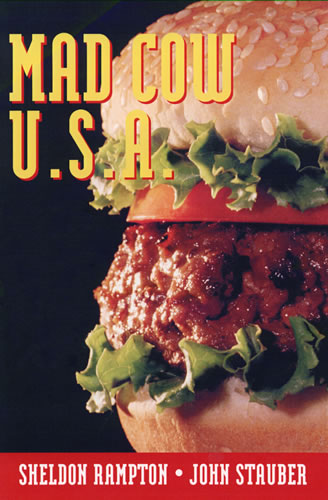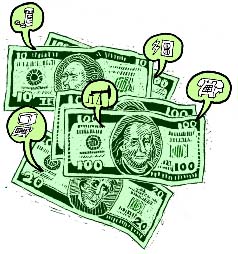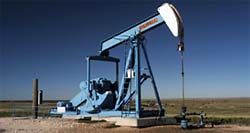No Rush to Protect the Public
Submitted by Judith Siers-Poisson on
Some U.S. Congresspeople want to limit direct to consumer marketing of drugs. Rep. Bart Stupak is head of the U.S. House of Representatives Energy and Commerce investigative panel.

Submitted by Judith Siers-Poisson on
Some U.S. Congresspeople want to limit direct to consumer marketing of drugs. Rep. Bart Stupak is head of the U.S. House of Representatives Energy and Commerce investigative panel.
Eight thousand pages of documents related to the Pentagon's illegal propaganda campaign, known as the Pentagon military analyst program, are now online for the world to see, although in a format that makes it impossible to easily search them and therefore difficult to read and dissect. This trove includes the documents pried out of the Pentagon by David Barstow and used as the basis for his stunning investigation that appeared in the New York Times on April 20, 2008.
The Pentagon launched its covert media analyst program in 2002, to sell the Iraq war. Later, it was used to sell an image of progress in Afghanistan, whitewash the U.S. detention center at Guantanamo Bay, and defend the Bush administration's warrantless wiretapping, as David Barstow reported in his New York Times expose.
 But the pundits weren't just selling government talking points. As Robert Bevelacqua, William Cowan and Carlton Sherwood enjoyed high-level Pentagon access through the analyst program, their WVC3 Group sought "contracts worth tens of millions to supply body armor and counterintelligence services in Iraq," reported Barstow. Cowan admitted to "push[ing] hard" on a WVC3 contract, during a Pentagon-funded trip to Iraq.
But the pundits weren't just selling government talking points. As Robert Bevelacqua, William Cowan and Carlton Sherwood enjoyed high-level Pentagon access through the analyst program, their WVC3 Group sought "contracts worth tens of millions to supply body armor and counterintelligence services in Iraq," reported Barstow. Cowan admitted to "push[ing] hard" on a WVC3 contract, during a Pentagon-funded trip to Iraq.
Then there's Pentagon pundit Robert H. Scales Jr. The military firm he co-founded in 2003, Colgen, has an interesting range of clients, from the Central Intelligence Agency and U.S. Special Operations Command, to Pfizer and Syracuse University, to Fox News and National Public Radio.
Of the 27 Pentagon pundits named publicly to date, six are registered as federal lobbyists. That's in addition to the less formal -- and less transparent -- boardroom to war-room influence peddling described above. (There are "more than 75 retired officers" who took part in the Pentagon program overall, according to Barstow.)
The Pentagon pundits' lobbying disclosure forms help chart what can only be called a military-industrial-media complex. They also make clear that war is very good for at least some kinds of business.
Submitted by Diane Farsetta on
As part of its plan to expand online "information operations," the Pentagon is launching "a global network of foreign-language news websites ... and hiring local journalists to write current events stories and other content that promote U.S. interests," reports Peter Eisler. The Pentagon launched Matawani.com last year, an Arabic-language site with Iraq news; other sites are being developed for Asian and Latin American audiences.
Submitted by Judith Siers-Poisson on
 The U.S. Department of Agriculture has been criticized for not totally banning "downer" cows -- animals "too sick or hurt to stand for slaughter" -- from the food supply. So "when a coalition of major industry groups reversed their position and joined animal advocates and several lawmakers in calling for an absolute ban," why wouldn't the USDA agree?
The U.S. Department of Agriculture has been criticized for not totally banning "downer" cows -- animals "too sick or hurt to stand for slaughter" -- from the food supply. So "when a coalition of major industry groups reversed their position and joined animal advocates and several lawmakers in calling for an absolute ban," why wouldn't the USDA agree?
Submitted by Bob Burton on
Almost two weeks after the New York Times reported on the Penatgon's military analyst program to sell controversial policies such as the invasion of Iraq, the broadcast television news outlets implicated in the program are hoping to tough out the scandal by refusing to report it.
Submitted by Judith Siers-Poisson on
 While the U.S. economy has been slowing, lobbyists have been making more than ever.
While the U.S. economy has been slowing, lobbyists have been making more than ever.
Submitted by Bob Burton on
One of the over 75 pundits revealed by the New York Times as being part of the Pentagon military analyst program was Robert H.
Submitted by Diane Farsetta on
 As gas and food prices rise, so does scrutiny of industry profits. But "food and energy companies have learned a lot since the 1970s about how to deal with public indignation," writes George Anders. In 1980, "Congress hit the energy industry with a windfall profits tax" that lasted until 1988.
As gas and food prices rise, so does scrutiny of industry profits. But "food and energy companies have learned a lot since the 1970s about how to deal with public indignation," writes George Anders. In 1980, "Congress hit the energy industry with a windfall profits tax" that lasted until 1988.
The Pentagon military analyst program unveiled in last week's exposé by David Barstow in the New York Times was not just unethical but illegal. It violates, for starters, specific restrictions that Congress has been placing in its annual appropriation bills every year since 1951. According to those restrictions, "No part of any appropriation contained in this or any other Act shall be used for publicity or propaganda purposes within the United States not heretofore authorized by the Congress."
As explained in a March 21, 2005 report by the Congressional Research Service, "publicity or propaganda" is defined by the U.S. Government Accountability Office (GAO) to mean either (1) self-aggrandizement by public officials, (2) purely partisan activity, or (3) "covert propaganda." By covert propaganda, GAO means information which originates from the government but is unattributed and made to appear as though it came from a third party.
Center for Media and Democracy (CMD)
520 University Ave, Ste 305 • Madison, WI 53703 • (608) 260-9713
CMD is a 501(c)(3) tax-exempt non-profit.
© 1993-2024